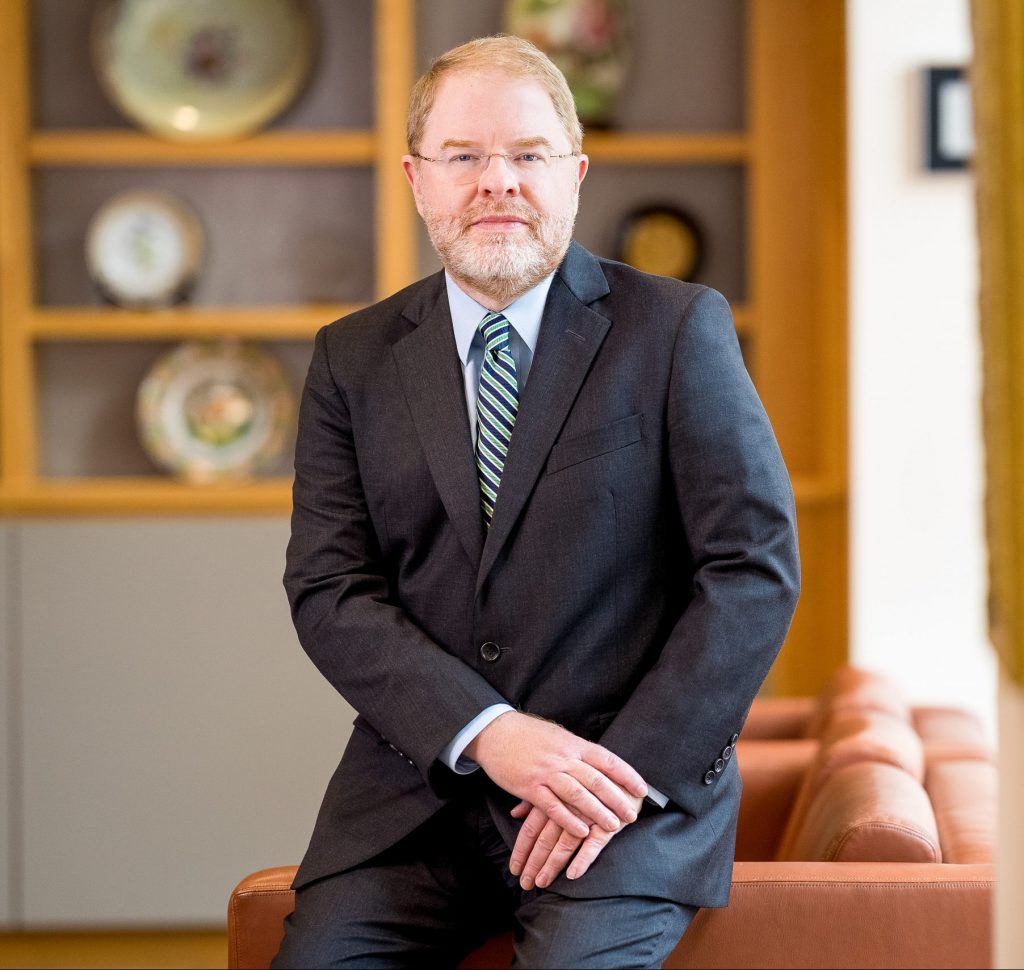BOG to Consider Changes to Tenure Review Process
Posted on Sept. 26, 2023Joining a fierce national debate over tenure, the UNC Board of Governors plans to receive recommendations at its November meeting on changes to the tenure review process governing faculty at its 17 member institutions.
At its September meeting, the board received a report that measured tenure review during a 10-year period. In the most recent academic year, from 2021 to 2022, less than 3 percent of the 742 tenured faculty in the UNC System who were evaluated were found to not meet expectations. Of the 182 tenured professors reviewed at UNC that year, three, or 1.6 percent, were deemed to not meet expectations.

UNC System President Peter Hans (Photo: University of North Carolina System)
“It is very clear when you look at a decade’s worth of data that variation between our campuses, in terms of the robust nature with which they undergo tenure review, is a concern. And it has been a concern of the board and the system office for some time,” said UNC System President Peter Hans.
Six system-wide collaborative work groups have been examining the policies and regulations that guide the campus approach to faculty employment, said board member Kirk Bradley, chair of the board’s committee on Educational Planning, Policies and Programs. He said policies had not been reviewed or revised “in 10, 20 and in some cases 50 years. Long overdue and to be applauded.”
Wade Maki, chair of the Faculty Assembly, and David English, chief academic officer of the UNC System, co-chair the post-tenure review work groups that are part of a larger initiative announced by Hans in January, in which six faculty policy areas were reviewed. The work group will make the recommendations to the board in November.
The groups consist of faculty nominated by Faculty Assembly delegates and selected by the Faculty Assembly Executive Committee, and administrators nominated by provosts and selected by English. The post-tenure review work group consists of tenured faculty and administrators, said Maki, director of the bachelor of liberal and interdisciplinary studies program at UNC Greensboro.
Recommended changes include:
- Ensuring rigor while providing flexibility for institutions to clearly define expectations for teaching, research and service.
- Delineating the ratings for meets, exceeds and does not meet expectations.
- Establishing rewards and recognition for those exceeding expectations, which officials say is largely missing from the current process.
- Demonstrating alignment between the annual review process and the post-tenure review process.
- Improving training for evaluators and shifting responsibility for evaluator training from the provost to department heads.
Carolina has 4,174 faculty members in all ranks, including 1,385, or one-third, who are tenured, according to information provided by UNC’s Office of Media Relations. Another 418 Carolina faculty are on the tenure track.
Some people have the misconception that tenure is a lifetime appointment, much like being appointed to the Supreme Court. But professors can be fired for misconduct, incompetence or neglect of duties, according a 2021 article published in the Carolina Alumni Review. “It’s not like you get tenure and go into early retirement,” Michael Palm, a tenured professor in the department of communication and president of the UNC chapter of the American Association of University Professors, told the Review. “You’ve still got ‘deliverables,’ as deans tend to call them. You still need to contribute to your field.”
Efforts to reach Beth Moracco, chair of the faculty at UNC, were unsuccessful.
Maki said he thinks changes to the UNC System’s tenure-review process are warranted, adding that faculty have “long noted the lack of any reward structure,” which he likened to a stick without any carrots. By having both, the process has more meaning for faculty,” Maki said.
Maki said 10 years of review data raised questions about the differences in rigor and equity among campuses, such as “a sizable campus having zero cases in 10 years where someone fell short of the standard. … A rigorous and equitable post-tenure review process strengthens the value of tenure.”
UNC–Greensboro was the only school out of the 17 system universities that found no professor not meeting expectations during the 2012–2022 academic years, according to the report.
“The proposed changes seek to address these big issues, align the process to annual reviews and improve reviewer training,” Maki said.
In other news, Hans recommended no increase for in-state tuition, which hasn’t been raised in eight years. “Continuing to hold the line on tuition sends an unmistakable signal to students and families across North Carolina that our public universities are available and open to all,” Hans said. “It’s the most important message we can share and the most important step we can take to maintain public support for higher education.”
— Laurie D. Willis ‘86
